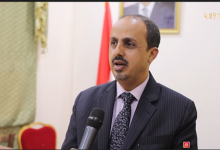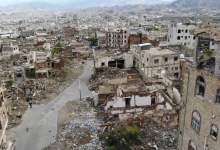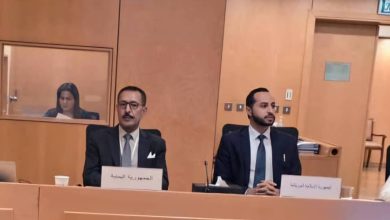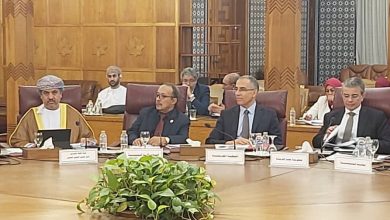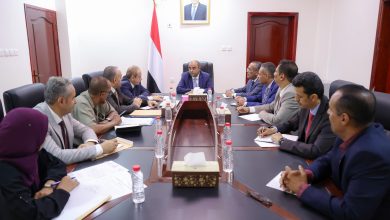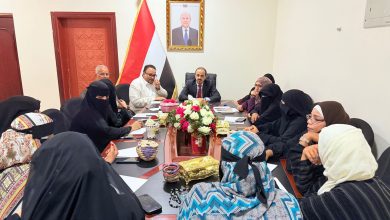The National Investigation Committee holds a session to review testimonies from landmine victims on International Mine Awareness Day.
National Committee Holds Special Hearing on Landmine Victims
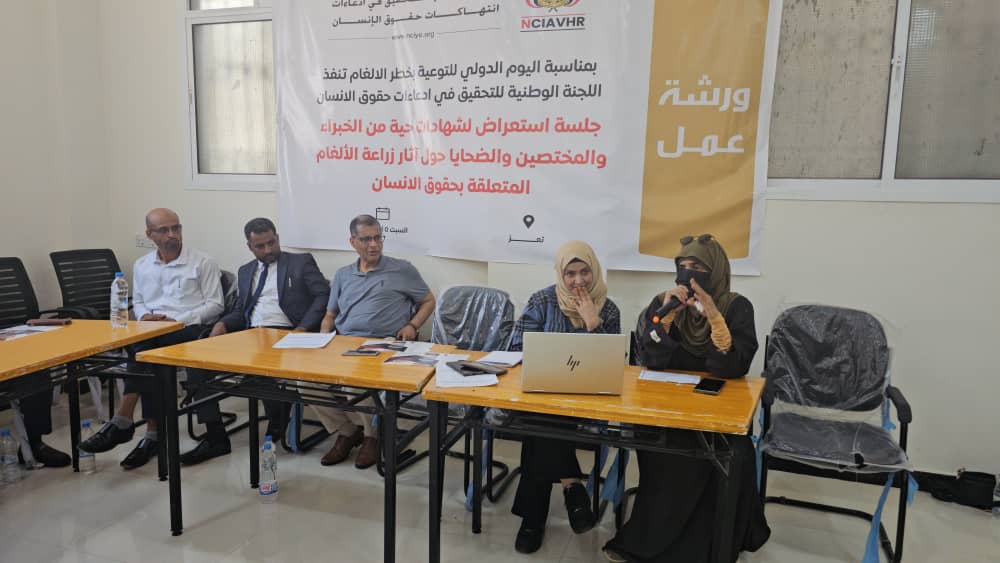
On Saturday, the National Committee for Investigation convened a special hearing to present live testimonies from landmine victims, alongside insights from various experts. This event coincided with the International Day for Mine Awareness and Assistance in Mine Action, highlighting the committee’s commitment to documenting human rights violations caused by landmines planted by the Houthi militia.
Diverse Approaches to Documentation
During the opening of the session, Judge Ishraq Al-Maqtari, a committee member, emphasized the importance of diversifying investigation and documentation methods. She stated that direct interviews with victims allow the committee to capture their experiences and record their rights demands. This approach acknowledges the physical, psychological, and economic damages victims have endured, which significantly impact their enjoyment of basic rights.
The Threat of Landmines in Taiz
Colonel Aref Al-Qahhtani, Director of the Executive Center for Mine Action and supervisor of the “Masam” demining project in Taiz, presented alarming statistics regarding the landmine threat in the region. He noted that Taiz ranks among the most affected provinces, with landmines scattered across 18 districts, resulting in 1,409 casualties, including both deaths and injuries.
Colonel Al-Qahhtani also pointed out that landmines have deliberately targeted schools, leading to the destruction of 82 educational institutions and depriving thousands of children of their right to education. He highlighted that the Houthi militia has developed and re-manufactured landmines using Iranian expertise.
Legal Framework Against Landmines
Judge Imran Al-Qabati, President of the Public Funds Court in Taiz, discussed the national and international legal frameworks that reject the use of anti-personnel mines. He mentioned the available evidence proving their intentional use against civilians. Judge Al-Qabati expressed hope for justice through national courts and accountability for those involved. He stressed the state’s responsibility to ensure victims’ rights.
Support for Victims
Nabil Jamal, Director General of the Planning Office in the province, praised the resilience of landmine victims in facing the aftermath of this disaster. He underscored their vital role in revealing the realities of war in Yemen. Jamal reaffirmed the Planning Office’s commitment to supporting this group through economic empowerment programs and involving them in planning interventions tailored to their needs. He also called on donors and stakeholders to improve their living conditions.
Expert Testimonies and Victim Accounts
The session featured over 40 experts, specialists, and representatives from civil society organizations who provided legal, medical, psychological, and technical testimonies. Experts from prosthetic centers, the Yemeni Network for Victims’ Associations, and the engineering sector for demining in the Taiz military axis contributed to the discussions. They addressed the severe psychological impacts of landmines, including long-term trauma and suffering.
Seven landmine explosion victims shared their personal stories, recounting the details of the incidents that led to their injuries, the loss of limbs, and their struggles with treatment and adapting to prosthetics. The victims expressed their determination to hold perpetrators accountable and their rejection of any form of impunity, demanding comprehensive and fair compensation for themselves and their families.
Recommendations for Future Action
At the conclusion of the session, participants made several key recommendations. They urged the inclusion of landmine victims in development plans for Taiz, the implementation of comprehensive rehabilitation programs, and the establishment of a dedicated fund to support them. Additionally, they called for enhancing the capabilities of psychological support units in hospitals and prosthetic centers. The participants advocated for integrating a comprehensive aid package for landmine victims into national policies and plans aimed at protecting human rights, contributing to justice and reparations.
To follow the news in Arabic
